Sustainable Waste

What role does waste reduction play in sustainable development ?
The article discusses the importance of waste reduction in sustainable development. It highlights the environmental, economic, and social benefits of waste reduction, including conservation of natural resources, protection of ecosystems, climate change mitigation, cost savings, job creation, innovation and efficiency, public health, education and awareness, and community engagement. The article emphasizes that waste reduction is an essential component of sustainable development and encourages individuals, businesses, and governments to take action to reduce waste.

How does waste reduction contribute to a circular economy ?
The transition to a circular economy is significantly influenced by waste reduction, which encompasses various strategies like reusing products, recycling materials, and promoting resource efficiency. These practices help in conserving natural resources, reducing pollution, creating economic opportunities, and fostering sustainable consumer behavior. Governments and businesses play a crucial role in driving waste reduction through policy initiatives, technological innovations, and sustainable supply chain management. Community engagement and public awareness further support this shift towards a more sustainable economic model.
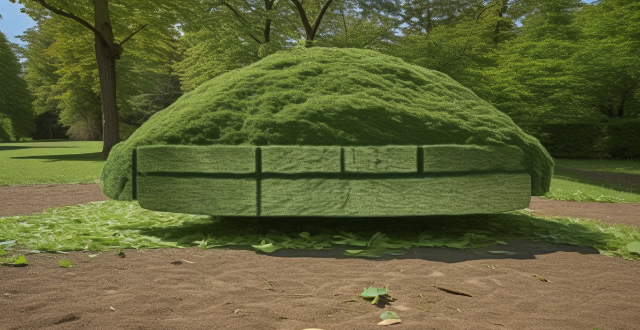
How can businesses implement waste reduction practices in their operations ?
This topic discusses the importance of waste reduction in businesses and provides strategies for implementing sustainable practices. It emphasizes the benefits of conducting a waste audit, adopting eco-friendly packaging, optimizing manufacturing processes, promoting reuse and repair, training employees in waste reduction, and partnering with green suppliers. The goal is to contribute to a more sustainable future while also benefiting financially through cost savings and efficiency gains.

Can sportswear companies produce more sustainable products ?
Sportswear companies can produce more sustainable products by using eco-friendly materials, reducing waste, and adopting circular economy principles.

How can governments promote waste reduction initiatives among citizens ?
Governments can promote waste reduction initiatives among citizens through education campaigns, incentives, regulations, community involvement, research and development, and public infrastructure investments. These strategies aim to raise awareness, encourage sustainable practices, enforce compliance, engage communities, fund innovative solutions, and establish efficient waste management systems.

What are the benefits of waste reduction for the environment ?
Reducing waste is crucial for preserving our planet's health and ensuring a sustainable future. Here are some key benefits of waste reduction for the environment: * Reduced Landfill Space * Conservation of Natural Resources * Decreased Pollution * Climate Change Mitigation * Preservation of Wildlife Habitats * Economic Benefits

Is biomass energy a sustainable solution, considering the resources required to produce it ?
The text discusses biomass energy, which is derived from organic materials like wood, crops, and waste. It is often considered a sustainable alternative to fossil fuels, but its sustainability depends on various factors such as land use, water consumption, nutrient management, and energy inputs. The potential environmental impacts include carbon emissions and waste management. Economic considerations involve job creation and cost competitiveness. Social impact includes energy access and public health. Biomass energy has the potential to be a sustainable solution, but its actual sustainability depends heavily on how it is produced and utilized.

How sustainable is the current model of the Double 11 Shopping Carnival, considering issues like overconsumption and waste ?
The Double 11 Shopping Carnival, also known as Singles' Day, has become one of the world's largest online shopping events. Originating in China, it is held annually on November 11th and has grown exponentially since its inception by e-commerce giants like Alibaba and JD.com. However, the sustainability of this massive sales event is being questioned due to concerns over overconsumption and waste. Overconsumption is a major concern during the Double 11 event, with heavy marketing campaigns leading to impulse buying and consumers purchasing items they do not need. The deep discounts often encourage shoppers to buy more than they originally intended, contributing to a culture of overconsumption. Additionally, the environmental impact of the event is significant, with the production and shipping of goods consuming vast resources and energy. The surge in packaging and delivery services significantly increases greenhouse gas emissions and plastic waste. Waste issues are also prevalent during the Double 11 event. Many products are over-packaged to protect them during shipping or to appear more appealing, leading to increased waste. Some packaging materials are non-recyclable or difficult to recycle, adding to environmental concerns. A high volume of returned items results in wasted resources and additional waste from reverse logistics. Fast fashion and low-quality electronics sold during sales often have short lifespans, leading to earlier disposal and waste. However, there are attempts at sustainability during the Double 11 event. Some companies are using biodegradable or recyclable packaging to reduce environmental impact. There is an increasing number of sustainable and ethical brands participating in Double 11, promoting greener consumption. E-commerce platforms run campaigns to educate consumers about sustainable choices and the importance of responsible consumption. Initiatives to recycle packaging and old goods are being implemented to mitigate waste issues. In conclusion, the current model of the Double 11 Shopping Carnival raises valid concerns about overconsumption and waste. While the event drives significant economic activity and consumer enjoyment, steps towards greater sustainability are crucial for its long-term viability. Balancing commercial success with environmental responsibility is essential for the future of not just Double 11 but e-commerce as a whole.

What are some innovative technologies being used for waste reduction ?
Innovative technologies are being developed to address the critical issue of waste reduction, including anaerobic digestion, recycling and upcycling, composting, incineration with energy recovery, zero waste practices, IoT and smart waste management, circular economy models, and biodegradable and compostable materials. These solutions aim to minimize environmental impact and promote resource conservation.
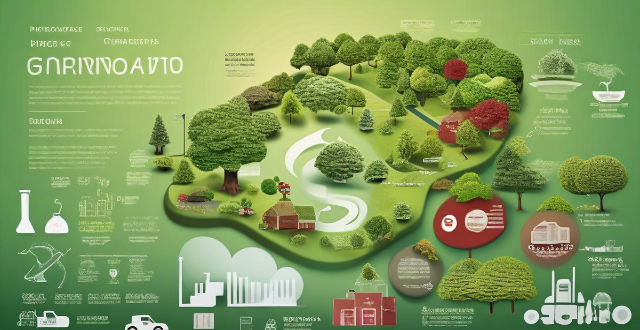
What is the impact of waste reduction on global climate change ?
This text discusses the importance of waste reduction in mitigating global climate change, highlighting how it can reduce greenhouse gas emissions, conserve natural resources, and protect ecosystems and biodiversity. It suggests ways to reduce waste such as reducing consumption, reusing items, recycling materials, composting organic waste, and supporting sustainable practices.

Can circular economy policies help reduce waste and pollution ?
Circular economy policies can significantly reduce waste and pollution by promoting reuse, recycling, and cleaner production methods. These policies incentivize businesses to design products that are easier to maintain and recycle, support sustainable business models like leasing and Product as a Service (PaaS), and encourage consumers to make environmentally friendly choices. Through such measures, the need for new raw materials decreases, energy consumption is reduced, and waste is diverted from landfills, all of which contribute to lower emissions and a cleaner environment.

Why is it important to recycle electronic waste ?
Recycling electronic waste is crucial for environmental sustainability, public health, and economic benefits. It conserves natural resources, reduces landfill space, prevents toxicity, creates jobs, saves costs, promotes green technology, reduces exposure to toxic substances, protects biodiversity, extends product lifespan, and raises awareness. Understanding the importance of e-waste recycling can lead to informed decisions that contribute to a circular economy and a healthier planet.

What are some innovative ways to recycle electronic waste ?
Innovative Ways to Recycle Electronic Waste Electronic waste, or e-waste, is a significant environmental concern that can be addressed through various innovative recycling methods. These include repurposing old devices, upcycling components, recycling plastics, energy recovery, designing for disassembly, regulation and education, and research and development. By adopting these strategies, we can reduce the amount of e-waste in landfills and lessen its environmental impact.

How does a circular economy contribute to waste reduction and resource conservation ?
The circular economy model promotes waste reduction and resource conservation by advocating for the reuse and recycling of materials, reducing raw material extraction, extending product lifecycles, treating waste as a resource, encouraging the sharing economy and digital services, improving resource efficiency, promoting biodegradable and renewable resources, raising consumer awareness, and supporting regulatory policies. This approach challenges traditional linear economic models and offers a sustainable solution to address environmental issues related to waste and resource depletion.

How do clean production technologies help reduce waste and pollution ?
Clean production technologies are vital in reducing waste and pollution. They achieve this through energy efficiency, resource efficiency, improved waste management, pollution control, and a holistic approach to sustainability via life cycle assessment. By implementing these technologies, industries can operate in a more sustainable manner, minimizing their environmental impact.
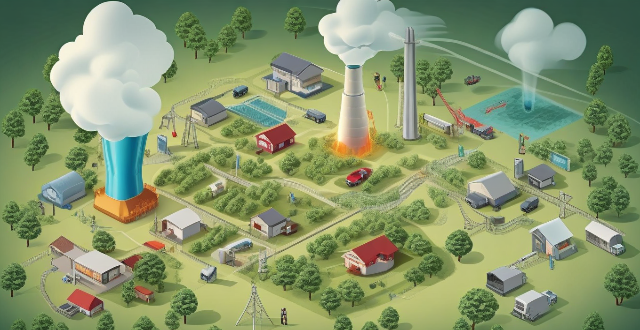
What is the relationship between waste reduction and energy conservation ?
The article discusses the relationship between waste reduction and energy conservation, highlighting their importance in promoting sustainable development. Waste reduction strategies such as recycling, composting, reusing materials, and reducing packaging conserve natural resources, reduce landfill space, and lower greenhouse gas emissions. Energy conservation measures like using energy-efficient appliances, improving insulation, and promoting renewable energy sources lead to lower energy costs, reduced greenhouse gas emissions, and promote sustainable development. The practices are interconnected, with recycling saving energy, composting reducing energy use, reducing packaging saving energy, energy-efficient appliances reducing waste, and promotion of renewable energy sources conserving energy and reducing waste.

How do cultural factors influence waste reduction practices ?
The text provides an overview of how cultural factors influence waste reduction practices, highlighting the role of cultural attitudes, social norms, education, religious beliefs, economic conditions, and technological advancements in shaping waste management behaviors. It emphasizes that respect for resources, consumerism vs. conservatism, composting traditions, public awareness campaigns, community cleanliness standards, taboos around waste, environmental education, family values, role models, stewardship principles, reincarnation beliefs, interconnectedness philosophies, affordability of disposable products, recycling costs, government incentives, access to technology, digital awareness campaigns, and innovative product design are all aspects of culture that can significantly impact waste reduction efforts. By understanding these cultural dynamics, more effective strategies for sustainable living can be developed globally.

Are there any laws or regulations aimed at promoting waste reduction ?
Laws and regulations aimed at promoting waste reduction include extended producer responsibility (EPR), landfill taxes and bans, recycling targets, packaging regulations, local ordinances and programs such as curbside recycling and composting, waste reduction education campaigns, pay-as-you-throw programs, and international agreements like the Basel Convention. These measures encourage sustainable practices, reduce waste production, and promote recycling.
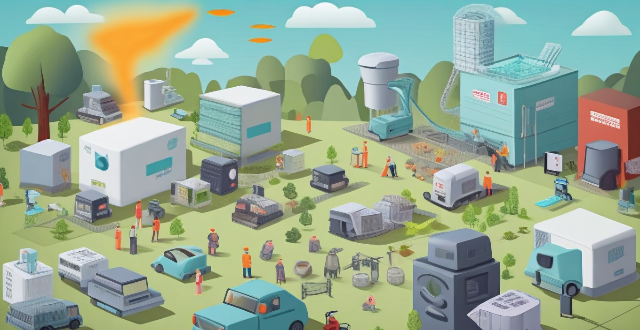
How does proper waste management aid in saving energy and reducing pollution ?
Proper waste management is crucial for conserving energy and reducing pollution. It involves strategies like composting organic waste to reduce methane emissions, enhancing recycling to save energy in manufacturing new products, preventing environmental pollution through proper disposal, promoting sustainable practices like reduce, reuse, and recycle, and supporting the circular economy model. By adopting these measures, we can move towards a more sustainable future that conserves resources and protects our planet.
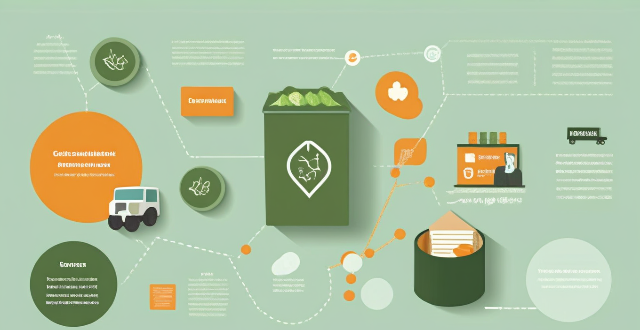
How can businesses contribute to sustainable consumption ?
Businesses can contribute to sustainable consumption by adopting circular economy principles, managing green supply chains, using eco-friendly packaging, practicing product stewardship, improving energy efficiency, conserving water, engaging in responsible marketing, promoting innovation, engaging stakeholders, and supporting environmental initiatives. These practices help reduce waste, minimize resource use, and inspire sustainable consumer behavior.

How can we promote sustainable development to reduce the risk of climate conflicts ?
Sustainable development is crucial for reducing the risk of climate conflicts. To promote it, we can increase awareness and education, promote renewable energy sources, implement sustainable agriculture practices, invest in green infrastructure, encourage waste reduction and recycling, and collaborate with governments and NGOs.

What are the challenges faced by developing countries in implementing waste reduction programs ?
Developing countries face various challenges when implementing waste reduction programs, including lack of funding, limited awareness and education, infrastructure and technology gaps, and weak governance and regulations. Addressing these challenges requires a multifaceted approach that involves increasing financial resources, improving education and awareness campaigns, investing in infrastructure and technology, and strengthening governance structures and regulations related to waste management.

Is it possible to achieve a zero-waste lifestyle ?
The text discusses the possibility of achieving a zero-waste lifestyle, which involves minimizing the amount of waste produced in daily life. It outlines three key steps: reduce, reuse, and recycle. Reducing waste can be done by buying only what is needed, choosing products with minimal packaging, and using reusable containers. Reusing items can involve donating or selling unwanted items, as well as repurposing them. Recycling involves separating recyclable materials from non-recyclable waste and sending them to facilities where they can be processed into new products. While achieving a completely zero-waste lifestyle may not be entirely feasible, making small changes in daily habits can significantly reduce waste production.

Can waste reduction lead to cost savings for individuals and companies ?
Waste reduction can lead to cost savings for both individuals and companies by minimizing waste in various aspects of daily life and business operations. For individuals, reducing food waste through meal planning and proper storage, minimizing energy consumption with energy-efficient appliances and water conservation, and reducing unnecessary spending through secondhand shopping and repairing instead of replacing can result in significant cost savings. Companies can also benefit from waste reduction by optimizing production processes with lean manufacturing techniques and resource recovery, improving logistics and supply chain management through just-in-time inventory and efficient packaging, and enhancing energy efficiency with green building design and employee training. Overall, waste reduction is a crucial aspect of sustainable living and business practices that can lead to cost savings while contributing to environmental sustainability.

What are the benefits of sustainable consumption ?
The text discusses the benefits of sustainable consumption, which include environmental protection, economic benefits, social well-being, and ethical considerations. By making conscious choices about what we consume and how we dispose of our waste, we can reduce our carbon footprint, conserve natural resources, preserve biodiversity, save costs, create jobs, promote healthier lifestyles, ensure equitable distribution of resources, build community, protect animal welfare, support fair trade, and encourage transparency and accountability in businesses. Sustainable consumption is crucial for creating a more sustainable future for ourselves and future generations.
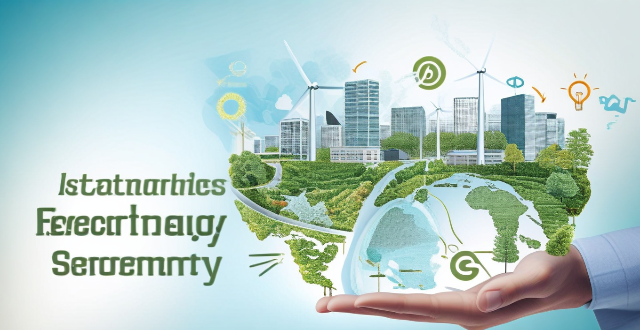
What are the main sources of sustainable energy ?
The text discusses the various main sources of sustainable energy, including solar energy, wind energy, hydropower, geothermal energy, bioenergy, tidal and wave energy, and hydrogen energy. It also highlights the importance of adopting sustainable energy for environmental impact, economic benefits, energy security, and health considerations. The transition to sustainable energy requires investment, policy support, and technological innovation.

Are there any laws or regulations regarding electronic waste disposal in my country ?
Electronic waste disposal is a critical issue that involves environmental protection, resource recycling, and sustainable development. Many countries have enacted specific laws and regulations to manage the proper disposal of electronic waste, aiming to reduce its negative impact on the environment and promote responsible recycling practices. These include extended producer responsibility, bans on exporting hazardous waste to developing nations, mandatory recycling targets, and take-back programs. Additionally, local authorities may implement further regulations such as collection points, disposal fees, prohibitions on landfill disposal, and public awareness campaigns. Consumers play a vital role in ensuring e-waste is disposed of responsibly by researching local disposal options, utilizing take-back programs, donating or selling old devices, properly recycling unusable devices, and reducing purchases. Adhering to these laws and regulations and following best practices contributes significantly to reducing the impact of e-waste on our planet.
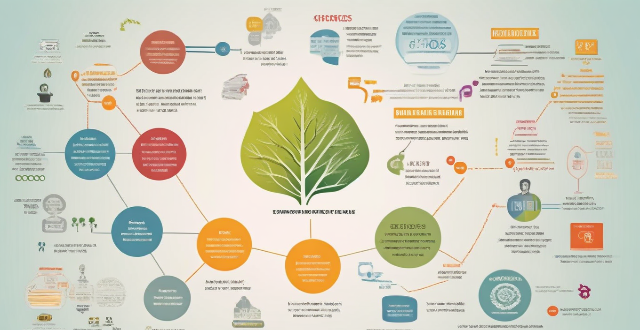
Why is the concept of a circular economy important for sustainable development ?
The circular economy, an economic system that minimizes waste and maximizes resource use, is crucial for sustainable development. It helps reduce resource depletion, waste, and pollution, while providing economic benefits, fostering innovation, and promoting social equity. By transitioning to a circular economy, we can ensure long-term sustainability and preserve resources for future generations.

In what ways can technology support the growth of a circular economy ?
Technology plays a crucial role in supporting the growth of a circular economy by enabling efficient use of resources, reducing waste, and promoting sustainable practices. It can improve resource management, reduce waste through recycling technologies and 3D printing, promote sustainable practices with carbon footprint calculators and green software, support circular business models like sharing economy platforms and product as a service models, and raise awareness about sustainable practices through online courses and social media campaigns.

How does resource-efficient utilization contribute to sustainable development ?
Resource-efficient utilization is key to sustainable development, conserving resources, reducing waste, and promoting economic growth. It helps mitigate environmental impact, provides economic benefits, and enhances social well-being. As we face global challenges like climate change and resource scarcity, adopting resource-efficient practices is crucial for a sustainable future.